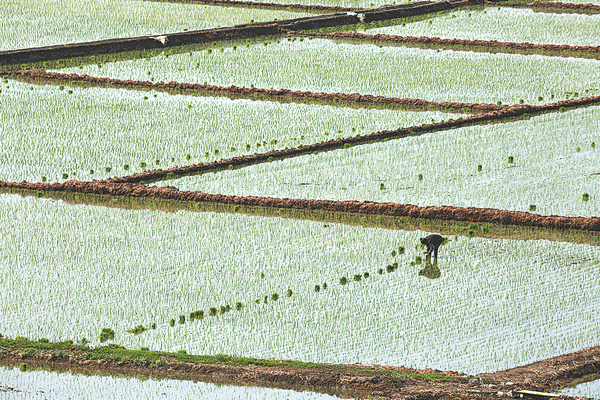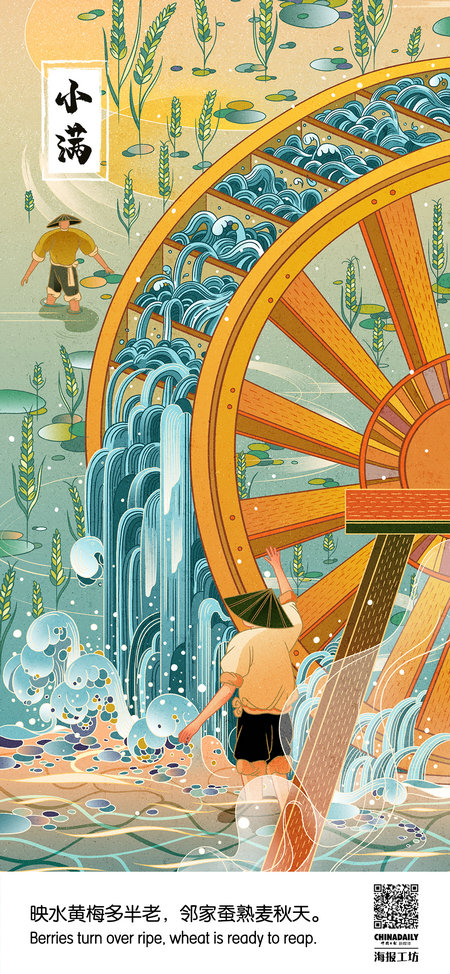Seasons ripe for change
By Xu Lin | CHINA DAILY | Updated: 2022-05-21 09:12

Xiaoman is the best time to cultivate silkworms, cook cocoons and prepare the spinning wheels for reeling silk. Silkworms are delicate and need to be taken good care of, and the mulberry leaves should be fresh and strictly selected.
Silkworm rearing is an essential means of livelihood for those in regions south of the Yangtze River, especially in Jiangsu and Zhejiang provinces. The ancient Chinese believed that xiaoman is the birthday of the silkworm deity and would offer sacrifices to pray for a boom season for cocoons.
Silkworms are rich in symbolism in ancient Chinese literature.

People can find out about rural life from poems on silkworm rearing. As it's a hard and time-consuming process for silkworms to spin silk and make cocoons, poets like to use them as a metaphor for enduring romantic love. Silkworms also represent the fleeting of time, because the cocoon season means the end of spring.
Famous Chinese poets such as Li Bai and Du Fu from the Tang Dynasty (618-907), and Su Shi from the Song Dynasty (960-1279) all wrote poems that vividly described the silkworm rearing activities at that time, such as silk reeling.
























